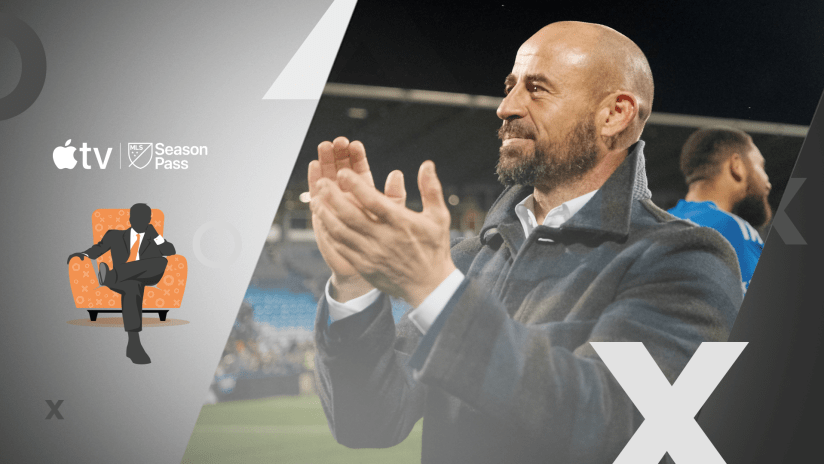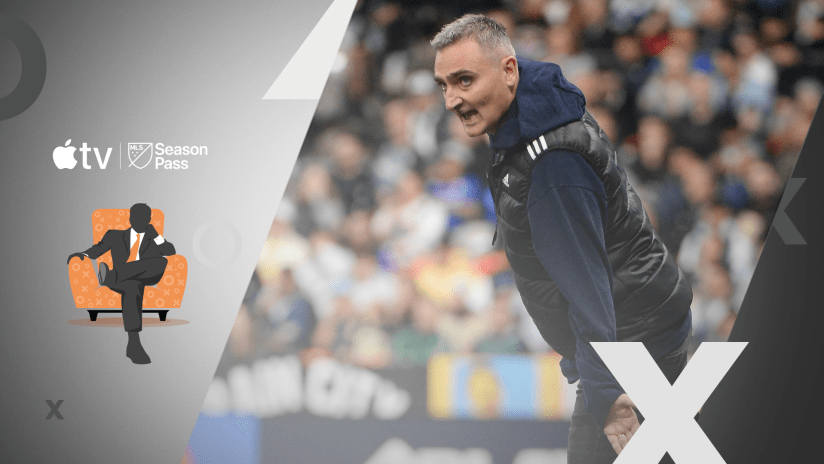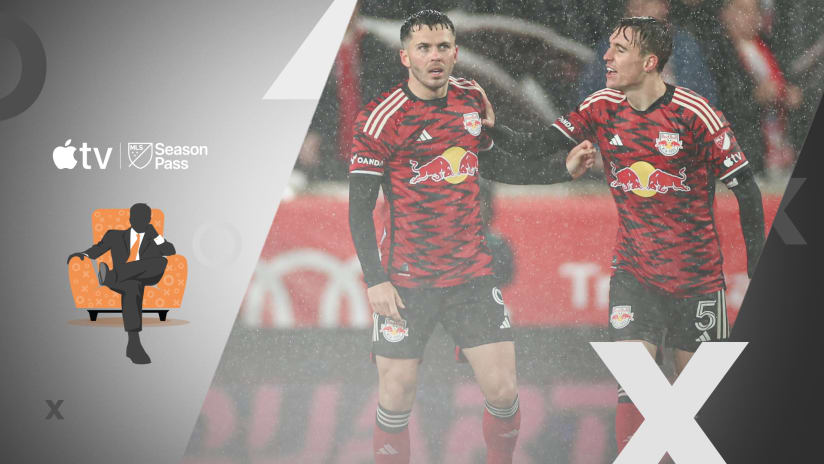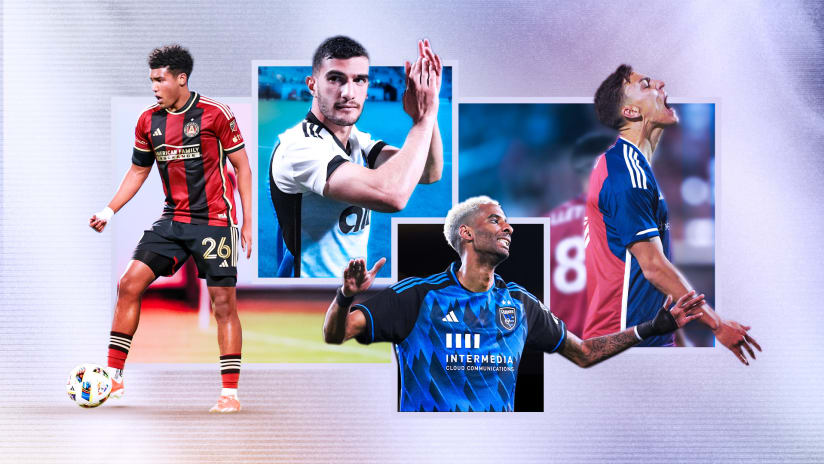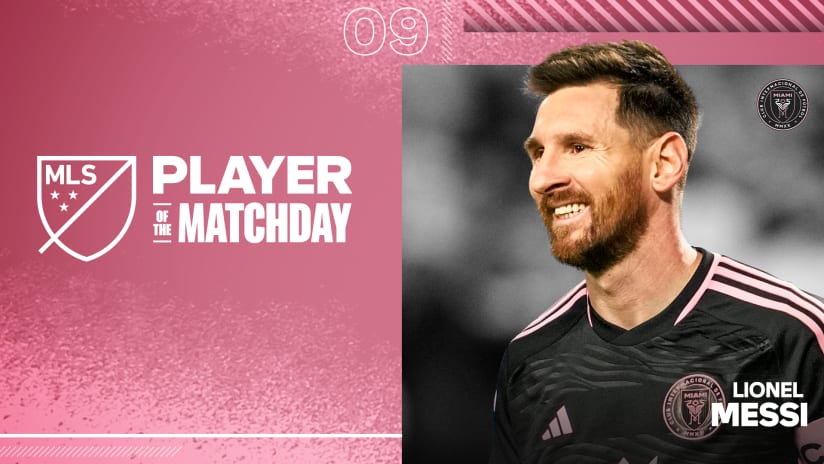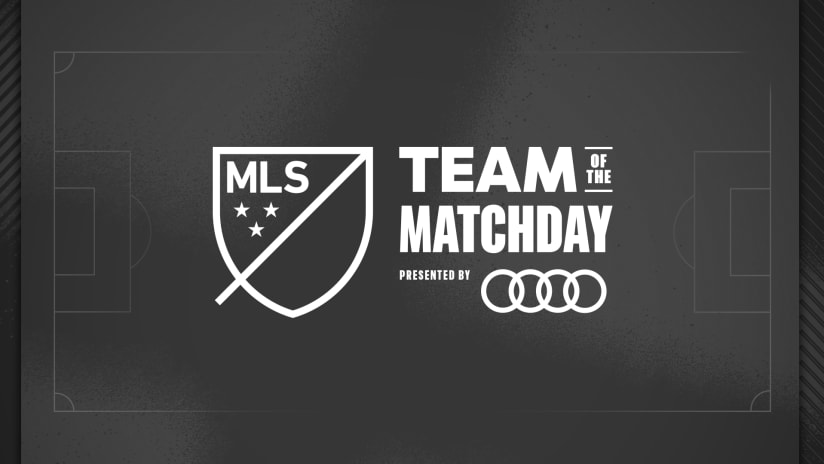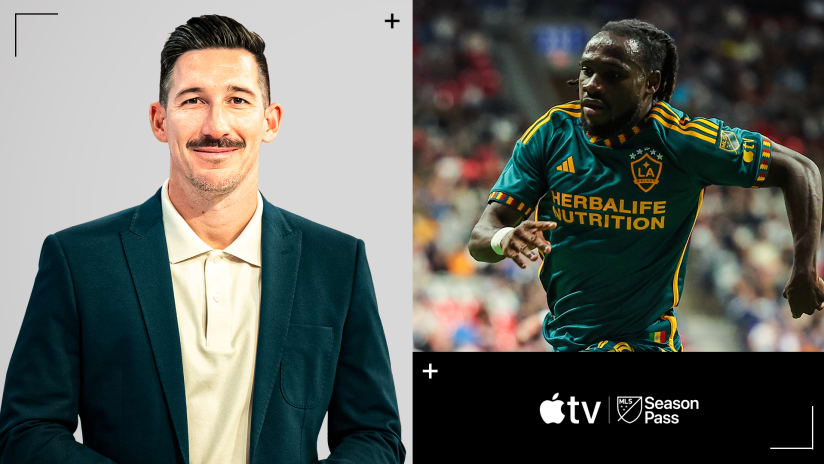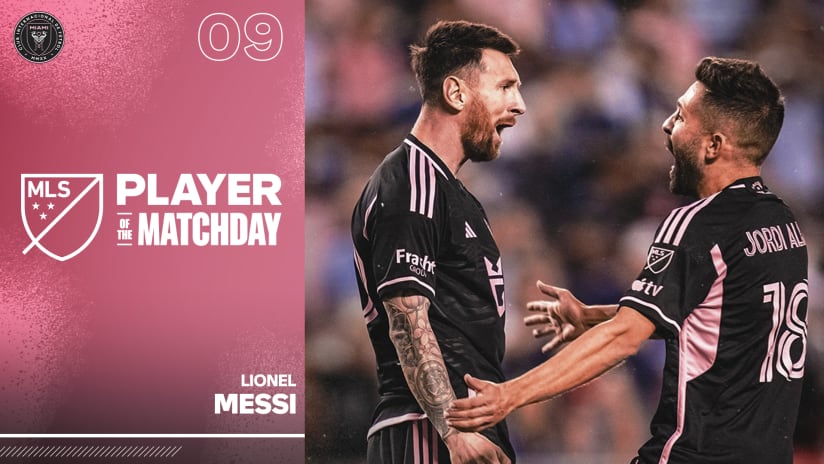We're around the final bend, having passed the 75 percent mark of the 2015 MLS season, and the Galaxy are starting to look something like Secretariat at the Belmont. They are moving like a tremendous machine, having taken 24 of the last 30 points on offer, putting to bed their road woes, and adding strength to an already overpowered roster.
Other teams are playing well, and the 'Caps hold a slight lead in points per game. But let's not kid ourselves: LA are the favorites.
Onto the games:
1. Wave of Mutilation
Perception drift is occuring. Stories like this one in which Steven Gerrard talks about the improved quality of MLS, or this retrospective from last December on Thierry Henry's journey and influence in his five years with the Red Bulls, are shaping the way the league is discussed and, at a core level for the casual fan, thought of.
Obviously that's a good thing, because more fans means more money, and more money means more talent – both imported and developed at home – and more talent means better soccer, and better soccer is the ultimate goal. I love watching MLS right now, and if you're reading this column you very likely love watching MLS right now, but the worldwide viewership numbers for the EPL, La Liga, Bundesliga and Serie A still drive home the point that most people love watching the very best the sport can offer. And no one out there is going to seriously argue our league belongs in the company of those Big 4 as of yet.
I will argue, though, that accurate interpretation of league history has become a casualty of this perception drift. "You can't just buy a big name and expect to win anymore," goes the current new-adopter conventional wisdom. "You need to have the team in place."
The the first part of that is wrong because you always needed the team in place to win in MLS. If big names alone were enough, then the Metrostars would have a full trophy cabinet; then the Houston Dynamo, a collection of mostly US and Canadian lifers, wouldn't have won back-to-back MLS Cups in 2006 and 2007; then the New England Revolution's group of college products wouldn't have been the most consistent team of the '00s; then Real Salt Lake's "The Team is the Star" motto would have been scoffed at rather than emulated.
MLS is better now because rosters are better, and deeper. US talent is better, and Canadian talent is better, and Jamaican and Honduran talent is better, and the big-name players the league is attracting are better. The coaching is better, and tactical adjustments are better, and the process of building and maintaining quality rosters is better understood in most markets.
But the holistic rubric for the above remains the same as what it was 10 seasons ago, or 20: Build an entire team. Trotting out Donadoni & Friends and expecting to compete with the league's best didn't work in 1996, and that same lesson is being learned by Villa & Co. in 2015:
MLS may have changed a lot in the last two decades, but the way you win in MLS hasn't. You need to build an entire team, an axiom backed up by the current perception and the eternal reality.
The big question in the Bronx is how long it will take the entire franchise to understand that.
2. Here Comes Your Man
I'm going to rip off my friend Charlie Boehm: It's late August, and Dominic Kinnear's team is hitting its stride with dour, gory efficiency. This is an argument for Kinnear's genius at in-season roster management and improvement, and against a playoff system that allows so many teams to the after party.
Putting aside the playoff argument for now, let's just take a minute to appreciate how quickly and thoroughly the Quakes have pulled out of a six-game nosedive and turned it into a three-match winning streak, including 5-0 at Sporting KC on Wednesday and then 2-0 at D.C. United on Saturday.
Winning on the road in MLS is rare enough. Winning on the road by five at a team that was, to that point, unbeaten at home and leading the league in points per game? Then following it up by posting another multi-goal shutout win at the Eastern Conference leaders while on short rest? San Jose's week wasn't just unexpected: It was historic.
The addition of two players, and the swap to a functional, no-frills 4-4-2 have been the catalysts.
Let's start with Quincy Amarikwa, the bowling ball of a No. 9 who uses his soft feet, low center of gravity, elite balance and strength to boss central defenders that tower over him. Amarikwa has been making plays like this on the regular:
Obviously this kind of thing is valuable all by itself. Just as obvious should be the fact that these plays increase exponentially in value because they draw in extra defenders, opening space to be exploited by Amarikwa's strike partner, Chris Wondolowski.
Nobody in MLS has been better than Wondo at finding gaps created by others. To burnish that point: This week while paired with Amarikwa he got his 10th, 11th and 12 goals of the season, making him the first player in league history to tally double-digits in six straight years.
The other big addition has been central midfielder Anibal Godoy. In his 270 minutes the Quakes are 3-0-0 with zero goals conceded. They have Alvaro Saborio's sloppy finishing to partially thank for that, but Godoy's precise passing also plays a role. He just doesn't turn the ball over, having completed 138 of his 151 attempted passes. He also has an underappreciated strength on the ball, so that when he does get closed down, he doesn't get stripped - instead he wins fouls at a rate higher than most box-to-box midfielders. He takes a beating so that his teammates don't have to.
The third part of Godoy's game is that "box-to-box" bit, which maybe oversells how often he ventures into the final third (read: Barely). This is the Quakes' network passing graph from the win over Sporting, and you can see that Godoy (No. 30) is the primary midfield hub, playing slightly deeper than running mate Fatai Alashe (No. 27):
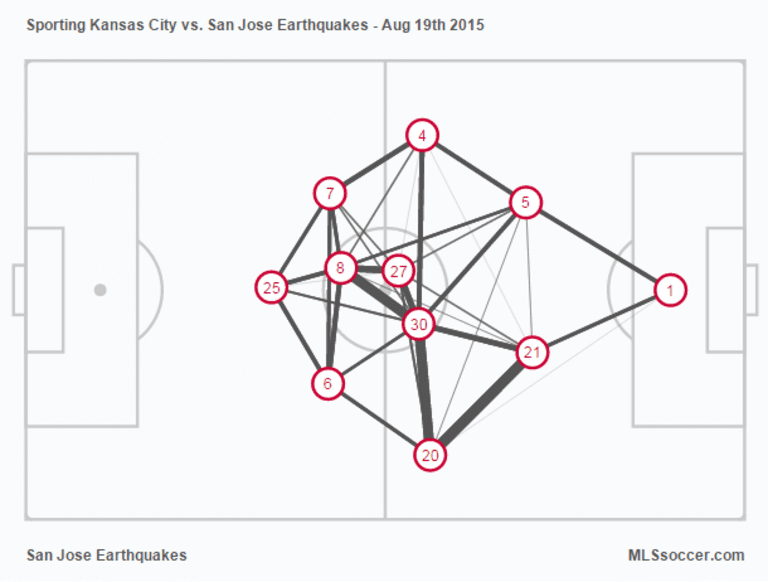
The thickness of the lines between the players represents how many passes they exchange, and it's clear that Godoy has become very good, very quickly at finding both overlapping fullbacks and Wondo dropping underneath. This frees up wingers Shea Salinas and Cordell Cato to rampage forward with more confidence, since they don't really have to worry so much about turnovers anymore.
"Simple" still wins in our game if it's also "effective." Godoy and Amarikwa are both doing that kind of work, and that's why the Quakes – who are even on points with the sixth-place Sounders, have a game in hand and play seven of their next eight at home – suddenly look like a solid bet to claim a playoff spot.
3. Gigantic
I've been a defender of Will Bruin's over the years despite his streaky finishing and somewhat one-dimensional play. The 25-year-old Dynamo striker has been among the league leaders in shots per 90 prior to this season, and has been especially good at getting into position to score high-quality chances. That in itself is a distinct skill, and one that's repeatable. With Bruin you largely know what you're going to get, as evidenced by the fact that he's scored double-digit goals in three of his last four seasons by getting onto the end of scads of chances.
There aren't a lot of guys who achieve that level of consistency at his age, but the interesting thing about Bruin – who had a goal and an assist in a 2-2 draw at Portland on Friday night – is that his game has evolved in 2015. He's taking fewer shots than in previous years, but is, for the first time in his career, putting more than 50 percent of them on frame. Overall his 10 goals this season have come on just 33 shots, 17 of which have been on goal.
The question thus becomes whether or not his current form is repeatable. Statistically speaking, it's not likely to be, and his finishing will regress to the mean. That is a big 2016 red flag for a Dynamo team that's not creating chances as often under Owen Coyle as they did under Kinnear.
The part of Bruin's improvement that is repeatable might go a ways in solving that issue. He's always been more of a channel-running forward despite having the size and look most associate with a true target forward, and to be fair he still gets most of his goals by running off the back shoulder. Just ask the Timbers.
But Bruin has put in real work to become a better outlet for Houston when under duress, as was the case at Providence Park:
That's not the kind of back-to-goal wizardry Amarikwa can produce, or the brute force ruggedness of, say, Dom Dwyer or C.J. Sapong. But it's incredibly valuable for a team that needs to get out of his own end en masse, and doesn't really have any options aside from lumping it up and out.
If Bruin can do that more often – and in 2015, he has – Houston can send more numbers forward with more confidence. It might lead to fewer chances for Bruin himself, and it might also point toward a more complete, team-wide attack and the ability to hold the ball with confidence in different spots on the pitch. That's a good trade-off if Coyle can get the rest of the pieces in place and if Bruin can keep bending his improvement curve upward.
Even with all this I still hesitate to call Bruin a true "target forward," because the few times he tried to receive the ball with his back to goal and a defender right on his back, he was dispossessed. But just as he's been so good at picking his spots to get shots in the attacking third, he's now become very good at picking his spots to receive passes in the build-up, and he's doing more with them.
Bruin's become more than just a goal-scorer. It's up to the Dynamo braintrust to figure out how to best take advantage of that.
A few more things to ponder...
6. The Chicago Fire have taken pole position in the Josh Yaro Derby following Saturday's 1-0 loss to the visiting Colorado Rapids. Yaro, a junior central defender from Georgetown via Ghana, is a lock to be the No. 1 SuperDraft pick if he decides upon MLS. Think of a bigger, stronger, faster version of A.J. DeLaGarza - reliable, smart, and able to play in central defense or at right back.
It's worth noting that Colorado's goal came from Homegrown winger Dillon Serna, who started just his fifth game of the year in the win. Perhaps with the playoffs out of reach Colorado will begin playing their kids.
5. One kid who has completely turned the corner is Vancouver's Kekuta Manneh, who created the lone goal in the 'Caps 1-0 win over FC Dallas on Saturday night. He can still over-dribble at times, but at just 20, he's become a difference-maker to the good on a weekly basis.
4. Also a difference-maker to the good at a tender age is Columbus Crew SC defensive midfielder Wil Trapp, who hit our Pass of the Week in Saturday's crucial 3-2 win over Sporting:
That's a Pirlo-esque diagonal directly into the fullback's run, which is crucial for Columbus' scheme. Crew SC did manage to drop points this week, though, thanks to a 2-2 home draw against NYCFC on Wednesday. Their defense remains vulnerable in the air both on set pieces and from the run of play, which is a bad thing when combined with their continued struggles to apply defensive pressure along the flanks.
3. Are RSL back? Was Saturday's dominant 2-0 win over Seattle a mirage? Obviously it's tough to say given their up-and-down form, and the fact that the numbers they put up look like an outlier given their form this season. They held Seattle to just one shot on goal while dominating possession and completing over 100 passes in the final third. It's not quite classic "diamond" RSL, but it was a damn good performance that has them just three points behind the Sounders for the final playoff spot in the West.
2. The expansion team blues have hit Orlando City in a big way.They lost 5-0 at Toronto on Saturday, which extends a slide in which they've won just once in their last nine games. During run they've been outscored 25-10, and don't appear to have any defensive answers beyond "bunker and pray." They now have the exact same record as NYCFC (7-12-7), but a significantly worse goal differential (-14 to -7).
1. And finally, our Face of the Week goes to Philadelphia Union winger Sebastien Le Toux. He got the game-winner in the Union's 1-0 win at Montreal, spoiling the debut of Didier Drogba:
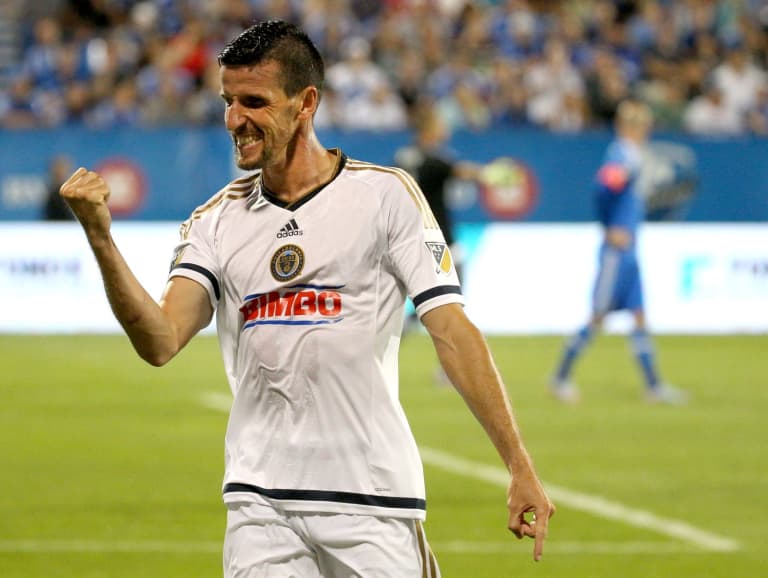
Philly are only a point back of Montreal in the playoff race, though the Impact have four games in hand, so it's Montreal's spot to lose.
As Saturday's result showed, they are capable of doing exactly that.


